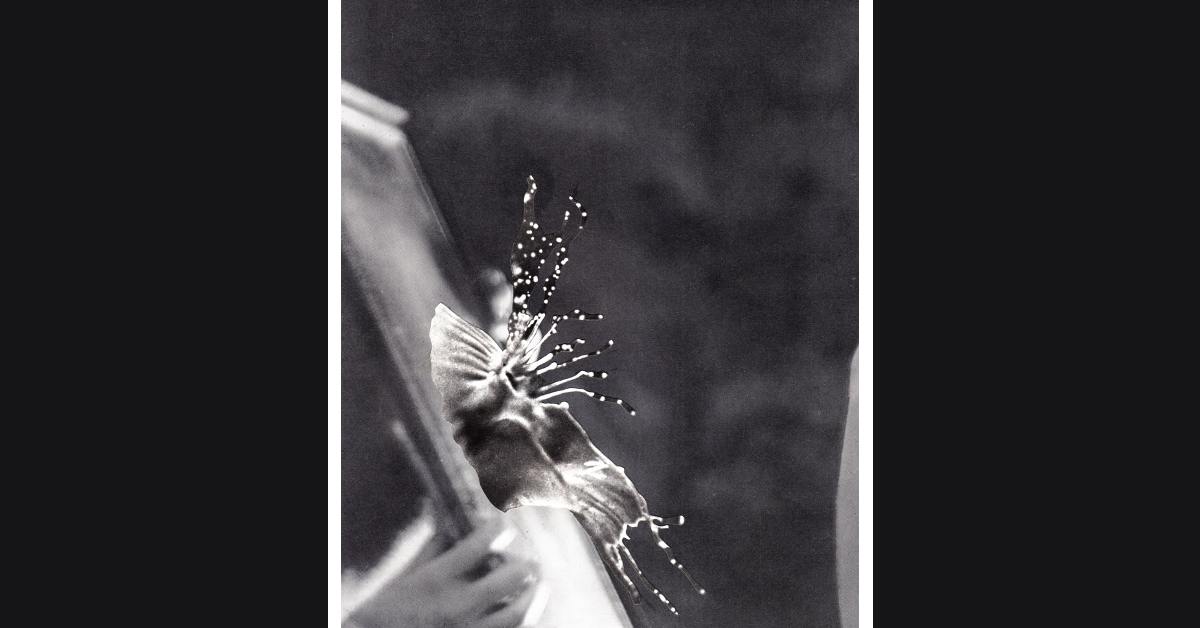“These are the times that try men’s souls.” Thomas Paine
“The science of psychology has been far more successful on the negative side than on the positive side . . . It has revealed to us much about human shortcomings, illnesses, and sins, but little about human potentialities, virtues, aspirations, or health.” Abraham Maslow
“We cannot seek achievement for ourselves and forget about progress and prosperity for our community. Our ambitions must be broad enough to include the aspirations and needs of others, for their sakes and for our own.” Cesar Chavez
“Far away there in the sunshine are all my highest aspirations. I may not reach them, but I can look up and see their beauty, believe in them, and try to follow where they lead.” Louisa May Alcott
One thing I’ve learned over the last few years is the importance of not letting desperation kill aspiration. We are living in desperate times, both domestically and globally: the Israel-Hamas war, (a war provoked by the barbaric massacre of over 1,200 innocent Jews, the taking of 240 hostages, and the Hamas charter explicitly calling for Jewish genocide; AND a war prolonged by the disproportionate, indiscriminate, non-genocidal response by the Netanyahu-led, far-right Israeli government); the unprovoked Russian War on Ukraine; the ongoing disruptions of Iranian proxy groups like Hezbollah, Hamas, and the Houthis; North Korea’s nuclear threats; China’s increasingly aggressive and oppressive posture; Africa’s multiple wars, the acceleration of climate change, and the potential return of Trump to the Presidency. Yes, these are times that try our souls. It’s almost impossible not to focus on the negative, but, hopefully, “out of the fires of desperation burn hope and solidarity.” In spite of all this terror, our commitments need to be “broad enough to include the aspirations and needs of others.” That is our only chance for “sunshine and beauty.”
Henry David Thoreau observed that the mass of people lead “lives of quiet desperation” due to unfulfilling work, a lack of leisure time, and misplaced values. He believed our attachment to possessions, money, and status was wrong. While I believe that was an accurate assessment of our lives at the time, and is still true, we now live our lives in a loud, noisy, and violent world as well. The new book, Prophet Song, by Paul Lynch paints a dystopian, fictional account of just such a world that feels all too real today.
It seems to me that our aspiration, in face of this desperation, ought to be to devote whatever space we have in our lives to creating caring communities in the places in which we live, learn, and work. It’s all we can do.
My older daughter, Rebecca, is currently pursuing a Master’s in Divinity with the intention of creating spiritual communities. On a recent visit, I was reading one of the books for her courses, entitled, Post Colonial Images of Spiritual Care. I really resonated with two key constructs that were central to a chapter by Lori Klein in the book: cultural humility and reverent curiosity. Wow! Take a minute to reflect on those two ideas. Can you imagine a community in which most participants exercised cultural humility and reverent curiosity? In a post I wrote over five years ago, I discussed the importance of creating caring cultures. While the principles in that post have not changed, Lori Klein’s chapter took the idea to a whole new level, and the desperation of current times dramatically increases the sense of urgency for this aspirational shift.
I loved the two ideas so much that I asked my daughter if she remembered noticing the terms when she read the book. Not only had she resonated with the same two concepts, she had also written a paper about them. Here is what she wrote:.
I loved Klein’s discussion about the difference between cultural competency and cultural humility. Cultural competency seems to suggest an arrival, a fixed ability, a skill set that you have or don’t have, or one that you can definitively acquire. Cultural humility, on the other hand, suggests a way of being, a lens you bring and deepen across your practice and across your life. Cultural humility is ongoing work and requires a willingness to pause and reflect, pause and listen, pause and reconsider, pause and shift, even pause and repair. I love how Klein describes cultural humility as a “devotion to lifelong learning, listening, reflection, and self-critique.”
Cultivating cultural humility seems essential in spiritual care, as we must approach each individual, each situation, each moment with an openness and a humble stance, centering not our own experience or assumptions or “expertise,” but responding to what is and bringing “reverent curiosity” to the unique identity and situation, and needs of the individual, family, or community. As Klein writes, it is “imperative to approach each patient with respectful openness to their unique matrix of intersecting abilities.”
I think a huge part of cultural humility might be slowing down. I move quickly in my life. I talk fast, I work fast, I rush from thing to thing. But when I am interacting with people in a professional or spiritual capacity, I intentionally slow down. I intentionally drop into a different energy, sort of put myself aside, and bring my most conscious and response-able self into the room. I try to bring all my attention to the person(s) in front of me and get a sense for what they need, what they want to express, and what kind of support they are asking for. I think this also means not assuming you “know” anything before listening to someone’s story or concerns or questions. But I also think cultural humility means purposefully seeking out knowledge in order to keep growing, purposefully seeking out stories, movies, music, books, etc. that help you expand your cultural literacy and understanding for the different ways of being in the world.
I’m not sure I can add much to Rebecca’s wholehearted exposition on cultural humility and reverent curiosity, but I do know that, in an increasingly polarized world where differences seem amplified and understanding feels scarce, the need for genuine connection and belonging has become more crucial than ever. Fostering caring communities where individuals feel valued, respected, and supported, is not just a feel-good aspiration, but a vital step towards a more harmonious and inclusive society. However, building such communities requires more than just good intentions; it demands a conscious cultivation of humility and curiosity. What I have learned about culture change over the past 50 years is that assuming an air of arrogance or superiority in relation to others and imposing “answers” on others is a sure path to a divisive culture.
Cultural humility is not simply about acknowledging that different cultures exist; it’s about recognizing the limitations of our own cultural lens. It’s an ongoing process of self-reflection, where we confront our own biases, assumptions, and privileges. It involves recognizing that our own way of life, though familiar and comfortable, is not the only valid one. This humility fosters a teachable spirit, open to challenging our own perspectives and embracing diverse experiences.
Imagine a classroom where students are encouraged to share their unique cultural traditions and perspectives. A teacher practicing cultural humility wouldn’t simply accept these contributions on face value, but would actively seek clarification, ask respectful questions, and avoid imposing their own interpretations. This creates a space for genuine learning and understanding, where differences are not erased but celebrated.
Reverent curiosity builds upon this foundation. It’s not just about asking questions, but about approaching them with respect, empathy, and a genuine desire to understand the other person’s story. It’s about recognizing the inherent value in each individual’s experiences, regardless of their background or beliefs. This curiosity encourages active listening, where we listen not just to the words, but also to the emotions, nuances, and unspoken messages behind them. I might substitute authentic with Lori Klein’s use of reverent, but I think either word describes the most productive attitude. For me, an authentic attitude is essential for creating a caring culture.
Imagine a conversation between neighbors from different backgrounds. One person might share a personal struggle, a cultural taboo. Authentic curiosity would prompt others to listen without judgment, seeking to understand the emotions and experiences that shaped this perspective. Such genuine engagement fosters connection and empathy, even if agreement isn’t always reached.
Together, these two qualities create a powerful dynamic for building caring communities. Cultural humility allows us to approach each other with an open mind, free from pre-conceived notions and judgments. Authentic curiosity allows us to bridge the gap between those open minds and truly understand the experiences that shape each individual. This fosters trust, compassion, and a sense of belonging, where individuals feel valued and accepted for who they are.
Of course, this journey doesn’t always run smoothly. Difficult conversations, conflicting opinions, and cultural misunderstandings are inevitable. However, when we approach these challenges with cultural humility and authentic curiosity, we equip ourselves with the tools to navigate them constructively. We can engage in open dialogue, acknowledge and learn from differences, and ultimately find common ground.
In a world yearning for genuineness, connection, and understanding, cultivating caring communities is not just a possibility, but an imperative. By embracing cultural humility and authentic curiosity, we can unlock the power of genuine human connection, paving the way for a more inclusive, compassionate, and ultimately loving and caring world— a world less desperate and more aspirational. May it be so.
Also published on Medium.




May it be so indeed! Thank you Ricky